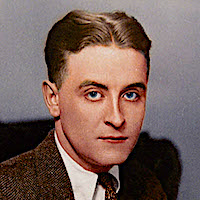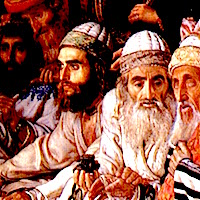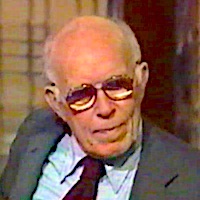

Tao Te Ching

Hebrew Bible, The Tanakh
A collection of Hebrew scripture used as a source for the Christian Old Testament. In Rabbinic Judaism it's divided into 24 books, 39 in the Protestant Bible, and 46 in the Catholic version. Historical scholars think there was an earlier, lost version from which these were taken. Many of the Tanakh's themes and stories can be traced back to ancient Sumerian cultures. Ancient Mesopotamian writings tell tales very similar to the Tanakh's flood, the Cain vs. Abel description, the Tower of Babel, the Dispersion, the story of Job, and many more. In the same way, many themes—like the one and only begotten Son of an eternal God—trace back to ancient Egyptian traditions.
Themes
Quotes from Hebrew Bible, The Tanakh
“Do not leave alive a single soul, completely destroy them—the Hittities, Amorites, Canaanites, Perizzites, Hivites and Jebusites—as the Lord your God has commanded you”
Chapters:
Comments: 1 comment
“Do not seek revenge or bear a grudge against anyone among your people, but love your neighbor as yourself.”
Chapters:
Comments: Click to comment
“If a man meets a virgin who is not betrothed, and seizes her and lies with her, and they a found, then the man who lay with her shall give to the father of the young woman 50 shekels of silver, and she shall be his wife.”
Chapters:
Comments: Click to comment
“Train up a child in the way he should go: and when he is old he will not depart from it.”
Chapters:
Comments: Click to comment
“Woe unto them that are wise in their own eyes.”
Chapters:
Comments: Click to comment
Related Lineages (1 lineages)
Quotes about Hebrew Bible, The Tanakh (9 quotes)

“The book of Genesis is a male declaration of independence from the ancient mother-cults. Its challenge to nature, so sexist to modern ears, marks one of the crucial moments in western history.”
Comments: Click to comment

“Let's persuade our more erotic poets to write about the delights of the flesh, and induce some of our robust journalists to contribute stories of famous amours. We'll include all the most preposterous old wives' tales now current. We'll choose the keenest satirist alive to compile a deity from all the deities worshiped by mankind... They had neglected to give it a name, but after they were dead it became known as the Bible.”
Comments: Click to comment

“Abraham was promised that his descendents would be as numberless as the stars [and] All three of the West's major religions consider themselves children of Abraham, each has often understood to be itself the only and final family of the patriarch.”
Comments: Click to comment

“If you wish to know how much preferable wisdom is to gold, then observe: if you change gold you get silver for it, but your gold is gone; but if you exchange one sort of wisdom for another, you obtain fresh knowledge, and at the same time keep what you possessed before.”
Comments: Click to comment

“The word 'wilderness' occurs approximately three hundred times in the Bible, and all its meanings are derogatory.”
Comments: Click to comment

“This is the reason my soul always turns back to the Old Testament and to Shakespeare. I feel that those who speak there are at least human beings; they hate, they love, they murder their enemies, and curse their descendants throughout all generations, they sin.”
Comments: Click to comment

“The Hebrew Old Testament eventually became a cornerstone of global human culture because it was warmly embraced by Christianity... In contrast, the Talmud—whose importance to Jewish culture far surpasses that of the Old Testament—was rejected... a great pity because the Talmud is a far more thoughtful and compassionate book than the Old Testament.”
Comments: Click to comment

“just like other great works of fiction, such as Don Quixote, War and Peace, and the Harry Potter books... much of the Bible may be fictional, but it can still bring joy to billions and can still encourage humans to be compassionate, courageous, and creative... billions of people have believed in these stories for thousands of years. Some fake news lasts forever.”
Comments: Click to comment

“Much of ancient mythology is in fact a legal contract in which humans promise everlasting devotion to the gods in exchange for mastery over plants and animals—the first chapters of the book of Genesis are a prime example. For thousands of years, religious liturgy consisted mainly of humans sacrificing lambs, wine and cakes to divine powers who in exchange promised abundant harvests and fecund flocks.”
Comments: Click to comment
Comments (0)